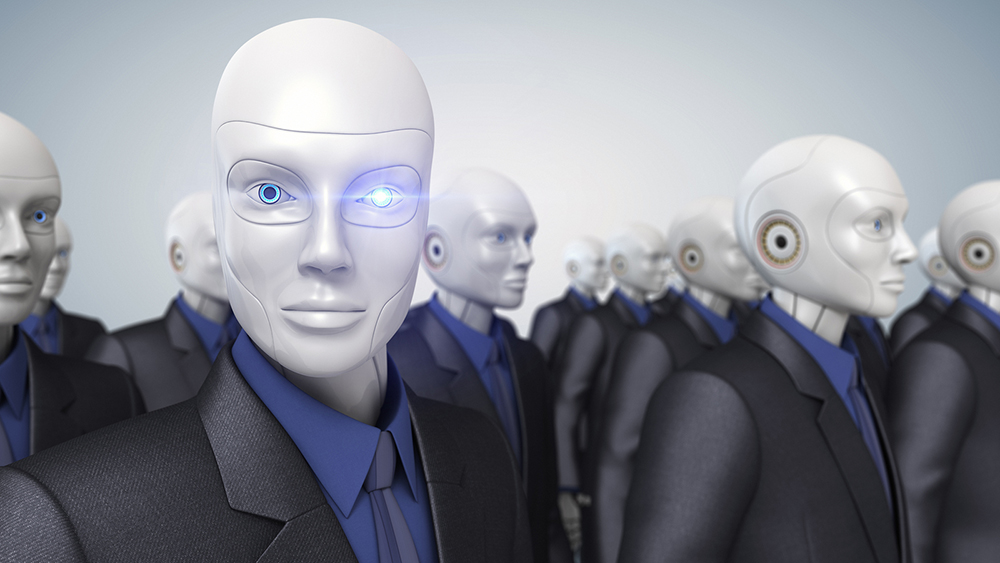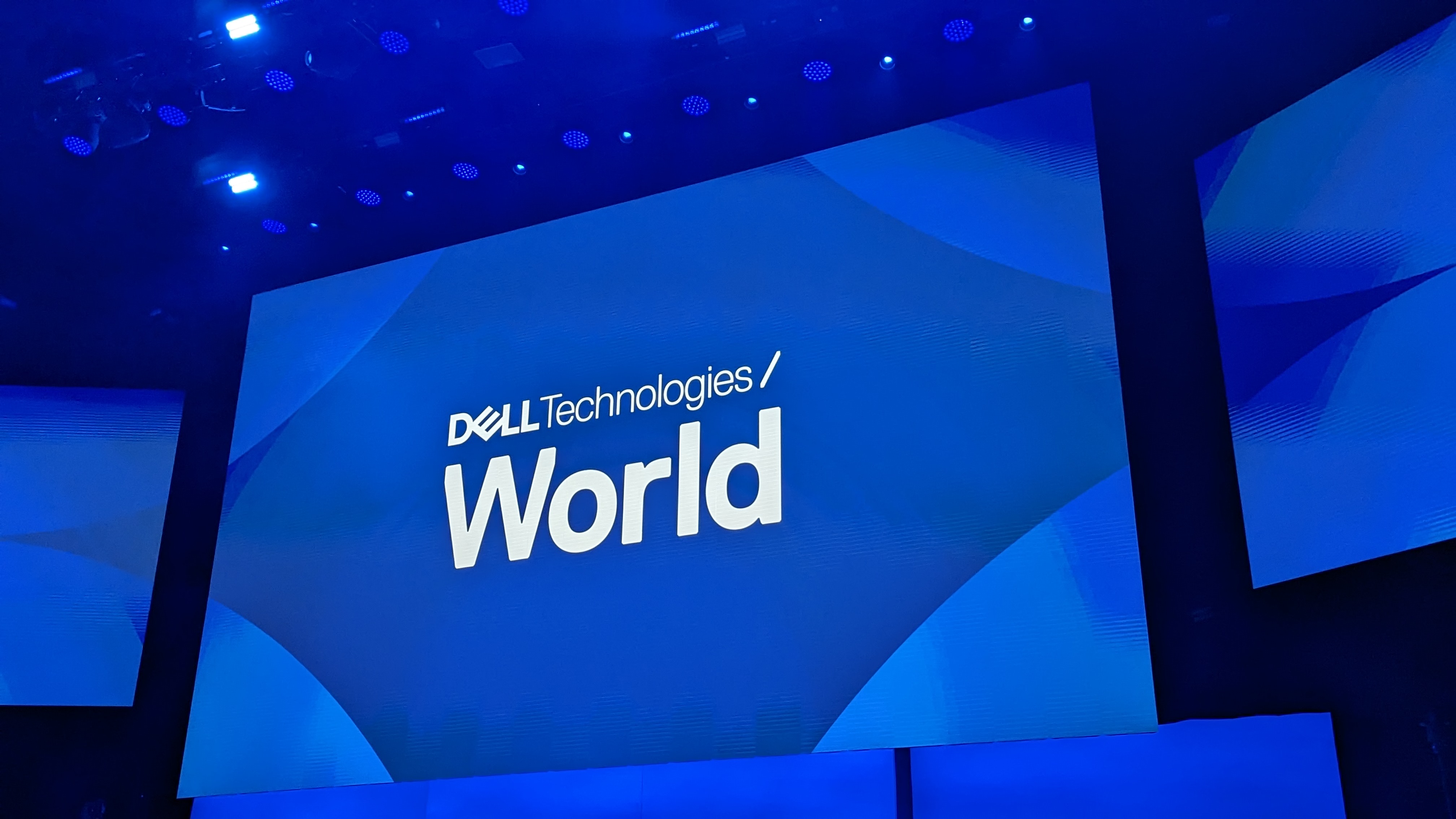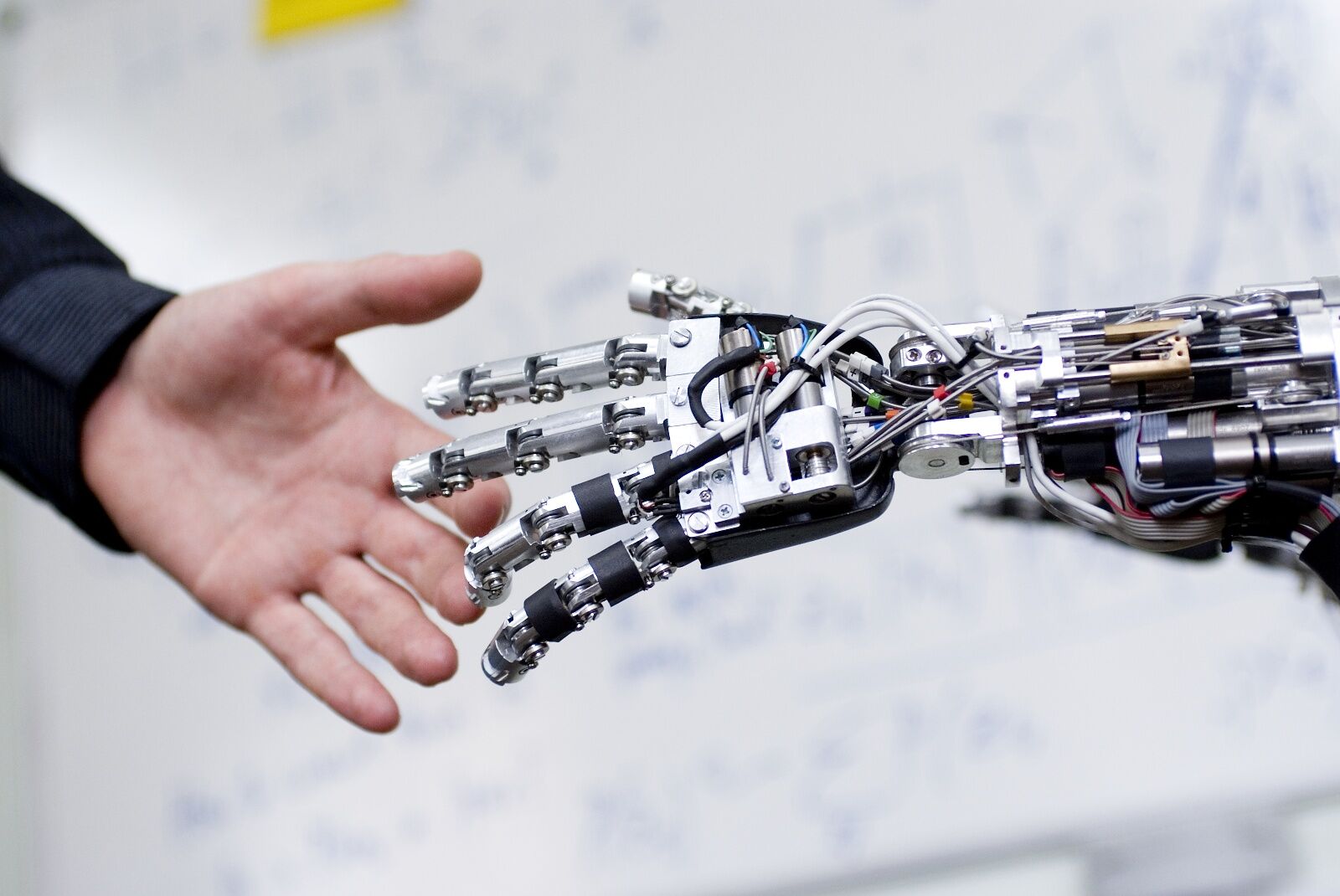Robots are coming to take your job - even if you're a banker
Why AI can do your white-collar job better than you can


Robots are coming to take your job, even if you're a white collar worker.
That's according to futurist and AI expert Martin Ford, who said that AI and robotics are soon going to begin replacing not just manufacturing jobs, but office jobs as well.
While the same claim has been made about every technological innovation since the Luddites opposed the industrial revolution, this time is different. What makes this scenario so unique is a combination of three factors, Ford said, which could make AI a genuine economic threat.
Firstly, machines and the software that drives them are getting exponentially more powerful and sophisticated, thanks to Moore's Law. "If you measure from the late 1950s when the first integrated circuits came into being," he said, "we've seen something in the order of 27 or 30 doublings in computing power".
IT is also an integral part of every business now, meaning that unlike previous technical advances - which usually only affected one sector at a time - newer breakthroughs could potentially jeopardise jobs in many industries at once.
Most importantly, however, machines now have cognitive capabilities. They can solve problems, they can make decisions, and in some limited capacity, they can learn. "How many jobs out there could conceivably be learned by another person?" Ford asked.
Given the proper instructions, resources and training, could a smart person figure out how to do a given task? "If the answer is yes," he said, "then I think it's a pretty good bet that eventually an algorithm will come along and be able to follow basically that same procedure."
Get the ITPro daily newsletter
Sign up today and you will receive a free copy of our Future Focus 2025 report - the leading guidance on AI, cybersecurity and other IT challenges as per 700+ senior executives
Examples of this are already being seen in the wild. Earlier this year, a Dutch robotics team won an Amazon contest in which robots had to intelligently pick, pack and stow items, with no real-time input or assistance from its creators.
The robot was able to identify 12 different items varying in size, shape and weight, load them into specific sections of a shelf and accurately pack them into boxes.
Amazon is already making heavy use of automated and robotic workers like this in its warehouses, and some anticipate that robots like this will be able to perform tasks based on visual acuity, judgement and perception around six times faster than a human worker.
This problem isn't just affecting unskilled blue-collar workers, though. Staffing in corporate financing departments has fallen by around 40% over the past decade, and Ford believes it's because these jobs are being replaced by smart software.
"What we're seeing across the board is that there's strong evidence that technology is now climbing that skills ladder," he said.
Highly-trained professionals like lawyers and paralegals are being displaced by algorithms that can automate the discovery process and other repetitive data-based tasks.
"In areas like radiology," Ford went on, "we're seeing lots of automation, where computers can now seek out tumours and interpret medical images."
The typical response to workers being displaced by machines is to retrain them, and place them in more highly-skilled roles. However, according to Ford, the implication of these figures is that this method is unlikely to remain viable for much longer.
Another common response to fears of job loss is that any new technologies will create fresh roles as quickly as they eliminate old ones, but Ford argues that this reasoning fails to take into account the type and number of jobs that these new technologies will create.
"In 1979, General Motors employed about 840,000 people. Now, compare that to Google in 2012, and Google had less than 5% of that number of workers. And yet, after adjusting for inflation, it generally did about 20% more in earnings than General Motors ever did."
As the tech industry is not particularly labour-intensive, Ford claims there are likely to be far fewer jobs being created to replace the ones that are eliminated. On top of that, they're probably going to be highly specialised jobs which anyone outside the industry is going to find difficult to do.
Ford warns that if we aren't careful, we could end up facing a genuine economic crisis before too long. He believes the companies currently spearheading the development of this technology have a moral obligation to ensure that this does not become a serious problem.
"My hope is that people in that industry, and capitalists in general - people that have the most influence in the economy - are going to take a leading role in making sure that we do have policies in the future that can adapt to that," Ford said.
Adam Shepherd has been a technology journalist since 2015, covering everything from cloud storage and security, to smartphones and servers. Over the course of his career, he’s seen the spread of 5G, the growing ubiquity of wireless devices, and the start of the connected revolution. He’s also been to more trade shows and technology conferences than he cares to count.
Adam is an avid follower of the latest hardware innovations, and he is never happier than when tinkering with complex network configurations, or exploring a new Linux distro. He was also previously a co-host on the ITPro Podcast, where he was often found ranting about his love of strange gadgets, his disdain for Windows Mobile, and everything in between.
You can find Adam tweeting about enterprise technology (or more often bad jokes) @AdamShepherUK.
-
 The Race Is On for Higher Ed to Adapt: Equity in Hyflex Learning
The Race Is On for Higher Ed to Adapt: Equity in Hyflex LearningBy ITPro
-
 Google faces 'first of its kind' class action for search ads overcharging in UK
Google faces 'first of its kind' class action for search ads overcharging in UKNews Google faces a "first of its kind" £5 billion lawsuit in the UK over accusations it has a monopoly in digital advertising that allows it to overcharge customers.
By Nicole Kobie
-
 Dell unveils AI partnership with Nvidia, aims for on-premises deployment
Dell unveils AI partnership with Nvidia, aims for on-premises deploymentNews Project Helix will see the two giants of tech collaborate to provide enterprise-grade AI
By Rory Bathgate
-
 Infosys and MongoDB want to modernise your legacy systems
Infosys and MongoDB want to modernise your legacy systemsNews The firms partner up to add scale and improve performance of legacy databases
By Ingrid Fadelli
-
 Can AI and 3D printing help the UK succeed after Brexit?
Can AI and 3D printing help the UK succeed after Brexit?News MPs: UK must look to tech to make the best of Brexit
By Ingrid Fadelli
-
 Government ‘must reskill UK workers to survive AI automation’
Government ‘must reskill UK workers to survive AI automation’News Committee inquiry criticises government’s lack of leadership on digital skills
By Joe Curtis
-
 Tech giants form ‘ethical AI’ supergroup
Tech giants form ‘ethical AI’ supergroupNews The organisation includes Amazon, IBM and Microsoft, but Elon Musk and Apple are both absent
By Adam Shepherd
-
 Inside IBM & SAP's cloud tie-up
Inside IBM & SAP's cloud tie-upIn-depth SAP will host its enterprise applications on IBM's cloud, for the benefit of both firms and their customers
By Stephen Pritchard